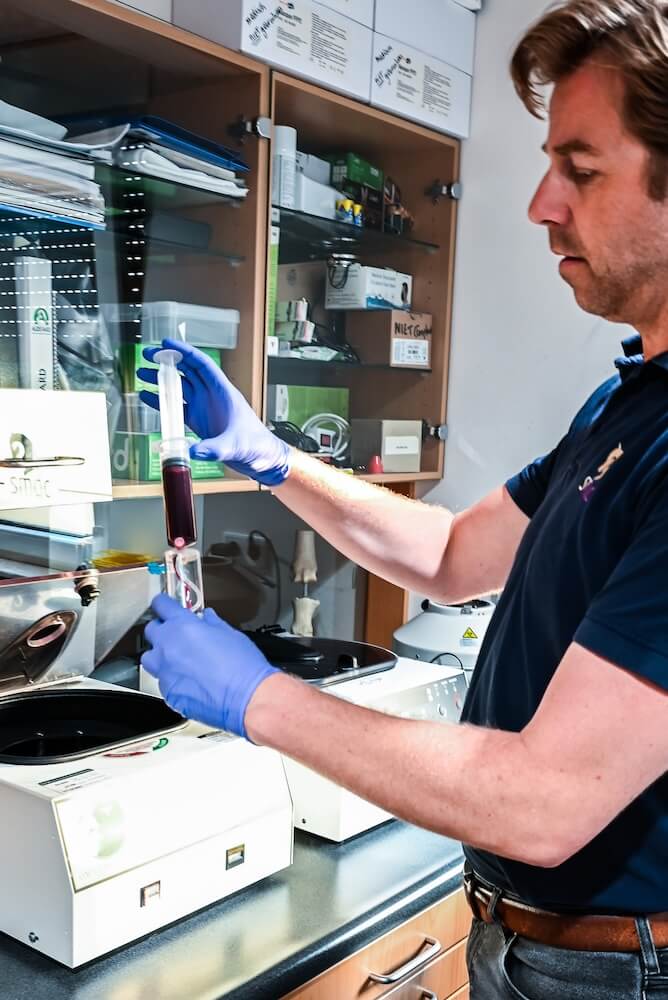Home » Internal Sports Medicine
Internal Sports Medicine at SMDC
Internal Sports Medine
Opening hours
- Mon - Fri : 8.00 AM - 5.30 PM
- Saturday : closed
- Sunday : closed
+ 31 (0)412 745500
The cause of poor performance or abnormal behavior may not be found in the musculoskeletal system but in the horse’s internal health. In some cases, it may result from a combination of orthopedic, internal, and muscular factors. Issues involving the respiratory system, heart, metabolism, muscles, or digestive tract can significantly affect a horse’s function and overall workload tolerance.
Internal sports medicine examinations
Blood tests
Blood work is a valuable tool for assessing a horse’s health status. It can reveal abnormalities that are not visible to the naked eye or detectable through a physical examination.
Echocardiography
Echocardiography is the primary technique used to visualize the horse’s heart. This specialized form of ultrasound allows for precise evaluation of the heart’s size, shape, function, and valves.
Cardiac Examination
The heart plays a crucial role in oxygen supply and athletic performance. Heart abnormalities often go unnoticed at first but can eventually lead to reduced stamina, loss of performance, or even life-threatening conditions.
Respiratory Examination
Healthy lung function is essential for both athletic performance and overall well-being. Reduced performance, coughing, nasal discharge, or abnormal breathing sounds may indicate respiratory issues.
Gastroscopy
Stomach disorders, such as gastric ulcers (Equine Gastric Ulcer Syndrome – EGUS), are common in sport horses. Typical symptoms include reduced performance, decreased appetite, teeth grinding, yawning, colic-like signs, weight loss, and changes in behavior.
Internal sports medicine treatment options
Respiratory Treatment
Respiratory disorders are common and can range from mild allergic reactions to severe infections or chronic lung disease.
Treatment of gastric ulcers
Gastric disorders are common in horses, especially in sport horses and foals. The most well-known condition is Equine Gastric Ulcer Syndrome (EGUS). Other issues such as gastritis, reflux, and rarer conditions like tumors or strictures may also occur.
TVEC
Transvenous Electrical Cardioversion is an advanced treatment used in horses to restore a normal heart rhythm in cases of atrial fibrillation.

Better to prevent than to cure
Symptoms of (possible) internal disorders
Difficulty or resistance when bending the neck may indicate problems. Also watch for poor muscle development or head shaking.
Heart problems can lead to reduced performance, fatigue, and difficulty breathing.
Coughing, mucus, or reduced fitness may indicate respiratory problems.
Subtle symptoms such as a dull coat, poor appetite, weight loss, or irritability.
You sense that something is not right: less enthusiasm, sudden resistance, or quick fatigue.
Together with the best specialists in their fields, we provide the most optimal support for your horse.
Feel free to contact us to discuss the options for your horse.
